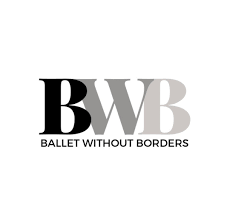Jess Spinner is a former professional dancer and now a multi-certified holistic health, nutrition, and lifestyle coach for dancers through her company The Whole Dancer. She supports dancers to find a balanced approach to food, their bodies, dance, and life. Through coaching, dancers are able to prioritize their well-being and at the same time achieve their highest dance goals–paid jobs, professional school enrollment, exciting dance roles, and so much more.
1. In 3 words what does ballet mean to you?
Joy, freedom, pain.
These days it’s mostly got positive associations however, it used to bring me a lot of pain, struggle and turmoil. So, I have to include that as well.
2. What would be your favourite ballet to dance?
I missed out on Swan Lake due to an injury and it’s always been a favorite of mine. It would absolutely be a dream to perform and I’m not even interested in the leads. I’d just love to be a part of the swan corps!
3. Do you believe that ballet is a readily accessible art-form?
No. There are still a lot of barriers. That’s just the reality. Tickets to see ballet performances are at times totally out of reach for people. Many schools take dancers who all look the same and that leaves people feeling very left out.
There are some simple ways to change but it does require that the heads of companies and schools take a good look at themselves and get really honest about where their biases lie. This takes really hard work. I actually wrote an article on unconscious bias in dance teaching for Dance Teacher Magazine online. You can check it out here:
https://dance-teacher.com/unconscious-biases-dance-teaching-practice/
4. What do you believe is a typical misconception about ballet that you would like to set straight?
I think there’s still a pretty extreme misconception among young dancers and dance parents that only the smallest bodied dancers can succeed. This misconception exists in the public as well wherein people think they can’t dance unless they’re thin or a certain size.
All bodies can dance. That openness does need to be communicated in order for the art form to become more accessible.
5. What are you reading right now?
I’m currently reading How to Be, Do, or Have Anything: A practical guide to creative empowerment by Laurence G. Boldt. It’s a great book and I highly recommend it. It’s very actionable, which I love.
6. 1 thing that most people don’t know about you?
I’m a pretty open book. I share a lot about myself and my experience online, especially about my dance journey. Maybe, most people don’t know that I’m an Aquarius and I’m actually very into astrology. That’s something I don’t talk about all that much. I can often guess what zodiac sign my clients are based on our conversations.
7. Why is the work BWB does so important?
This work is essential. There are very real barriers to ballet being accessible. It’s something that can be enjoyed by many, even if they never go on to pursue it professionally. Dance students are the future patrons, donors, and supporters of the arts. If we want ballet to go on and to thrive into a changing future, we need to find ways to make it a more accessible, comfortable, and kind place.
8. Favourite ballet to watch?
It’s back to Swan Lake for me! I particularly like Boston Ballet’s version. It’s pretty magical.
9. If you could go back to a point in time in your life, what advice would you give yourself?
I would go back to my early teen years. That’s the time I started to fixate on my body shape and size and to worry that my body wasn’t right for ballet. I wasn’t even able to acknowledge the physical attributes that were considered helpful for dance. It was also at this time that I started down a path of disordered eating patterns that lasted for over a decade of my life. I would tell myself that my body was fine. That I needed to allow it to go through the normal hormonal changes and maturation that were healthy and expected. I would let myself know that fueling adequately was what would yield the best dancing AND what would allow me to feel best in my own skin. I would share some of the amazing things I’ve learned and the ways I support dancers now through The Whole Dancer.
10. You have been given an elephant! You cannot sell it or give it away, what do you do?
Hmm, my first impulse is to find a way to return it to the wild or to create some sort of sanctuary for it. I suppose if I can’t give it away I’d seek out donors to provide funds to build it a sanctuary. My goal would certainly be to find a way to make the elephant as happy as possible and to create a life for it that’s as close to its natural habitat.

